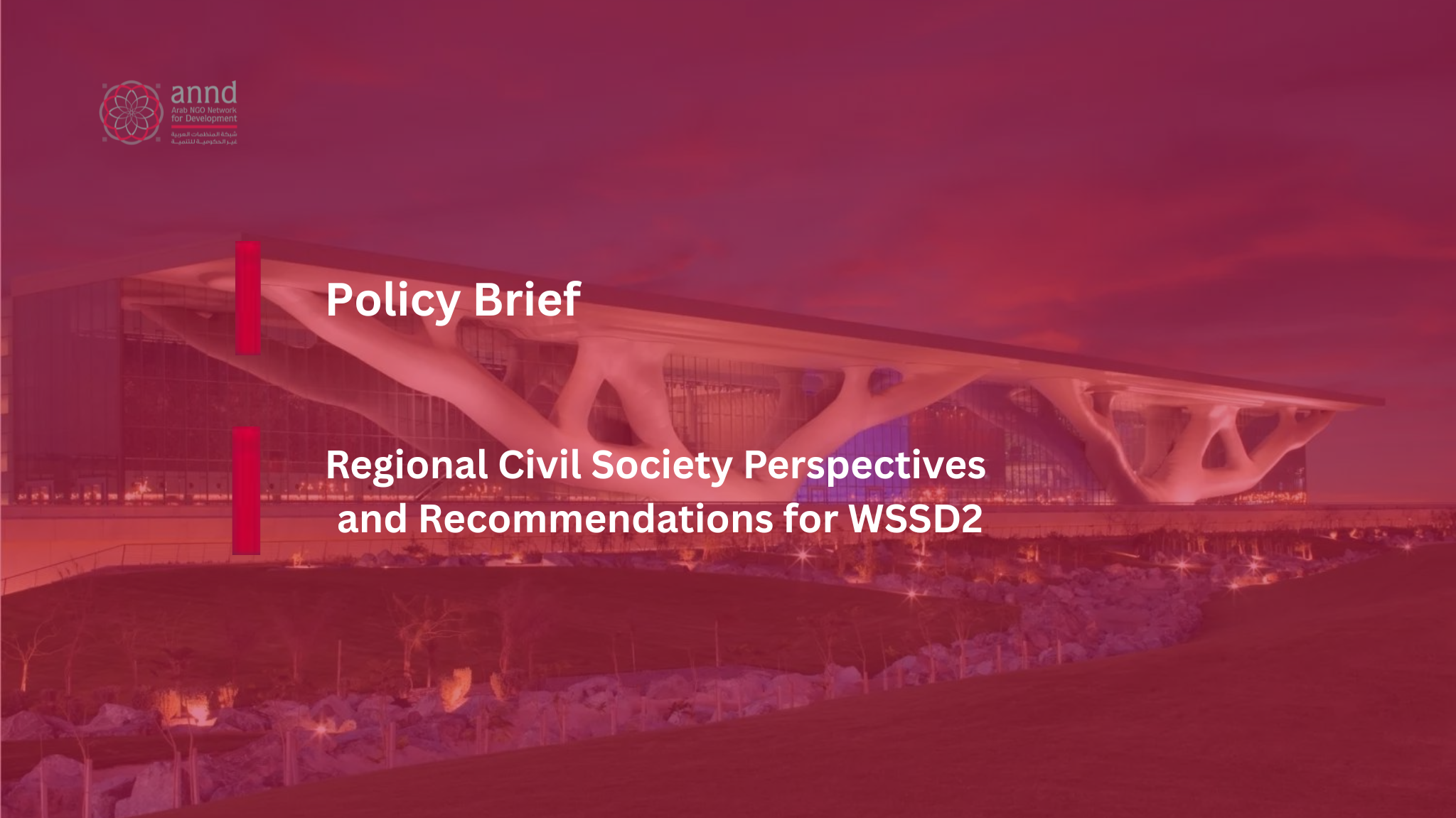
Regional Civil Society Perspectives and Recommendations for WSSD2
Regional Civil Society Perspectives and Recommendations for WSSD2
Thirty years after the Copenhagen Declaration on Social Development and plan of action (1995) which called for the eradication of poverty, full and productive employment, and the promotion of social integration, the challenges for achieving social development and social justice remain the same.
The declaration identified the creation of an enabling global, regional, and national environment—economic, political, and legal—as key to achieving social development, yet the current world order, shaped by the collapse of the neoliberal model, rising inequalities, growing unilateralism and militarization, the systemic violation of human rights and international law, and the weakening of the global governance system, has instead become deeply hostile to social and economic justice. This is taking place against a backdrop of growing global warming and environmental degradation, particularly water and food shortages. A large segment of the population suffers from poverty and declining services, a widening technological and digital gap, and rising debt, threatening financial collapses amid unprecedented humanitarian crises with 123.2 million people displaced worldwide , the destruction of fragile infrastructure and the basic structure of economies, and the absence of operational frameworks for regional coordination, support, and economic integration.
The Arab region is experiencing its worst conditions in terms of income disparity, unfair distribution of wealth, and deepening and widening inequality, in addition to the continued presence of authoritarianism, the absence of governance, transparency, and limited participation and accountability, the spread of informal and unprotected employment, and ongoing violence, including the Israeli-perpetrated genocide.
High public debt, weak regional economic integration, and the dominance of rent-based economies have deepened financial fragility and social vulnerability. Although some countries have achieved quantitative progress in education and health, these gains remain limited and uneven, failing to translate into inclusive or sustainable social development. Gender inequality, political repression, and the absence of structural reforms continue to block transformation toward a just, democratic, and cohesive Arab region.
Building on sustained civil society engagement, the Arab NGO Network for Development submits a policy paper presenting regional recommendations for the Second World Summit on Social Development (WSSD2), reflecting outcomes of regional consultations, webinars, and analytical papers to ensure that Arab realities are duly considered in shaping the global social development agenda.
Read the full policy brief here
You can also watch the related webinars on YouTube:
Watch the discussions
Recent publications

